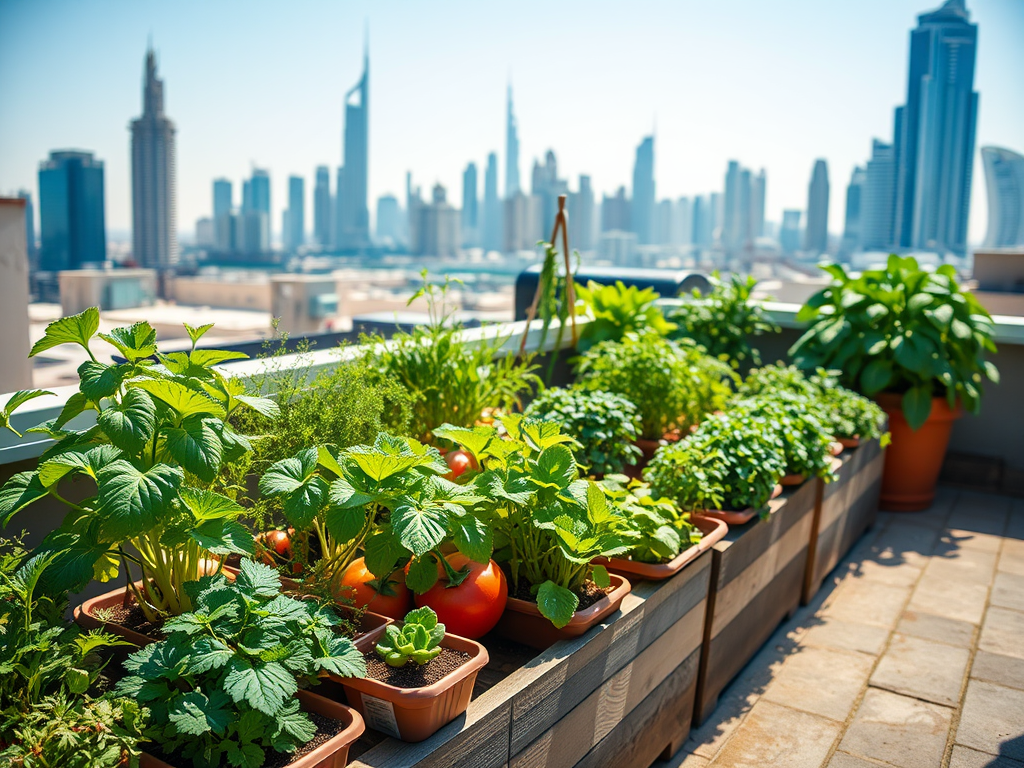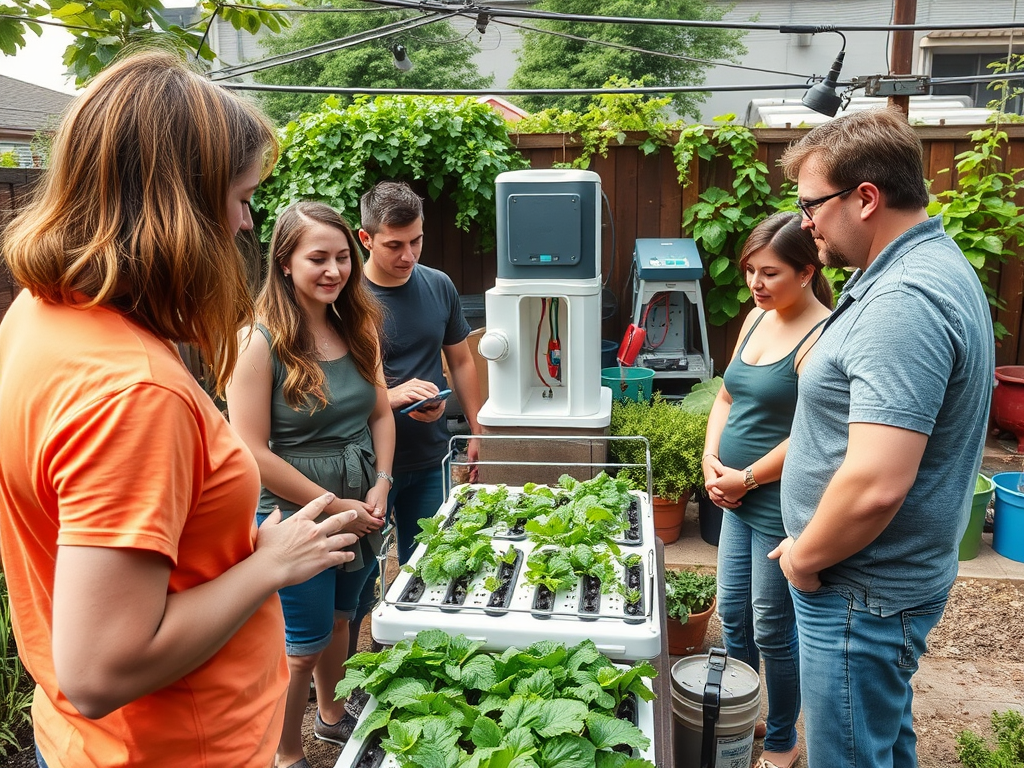Starting a specialty urban farming consultancy in Dubai is an exciting venture that taps into the burgeoning local interest in sustainable agriculture, food security, and green technologies. With its unique blend of urban development and limited arable land, Dubai presents an excellent opportunity for consultants who can offer innovative, tailored solutions for urban farming enthusiasts and businesses alike. In the following sections, we will explore the essential steps to establish your consultancy, from market research to legal requirements, securing financing, and building a brand presence.
Understanding the Urban Agriculture Landscape

To successfully open a consultancy, it’s essential to grasp the current urban agriculture landscape in Dubai. Urban farming has gained traction thanks to government initiatives aimed at enhancing food security and reducing reliance on imports. Additionally, climate-controlled environments such as vertical farms, hydroponics, and rooftop gardens are becoming popular solutions for maximizing production in urban settings. Here are crucial factors to understand:
- Demand for Local Produce: With an increasing focus on health and sustainability, consumers are seeking locally produced food.
- Technological Integration: Innovations such as IoT sensors and automated irrigation systems are pivotal for efficient urban farming.
- Government Incentives: Familiarize yourself with policies that support urban agriculture, including permits and potential subsidies.
- Community Engagement: Building relationships with local schools and community organizations can boost your client base.
- Market Competition: Identify existing players in the consultancy space and analyze their offerings to find your unique value proposition.
Conducting Thorough Market Research

Before diving into your urban farming consultancy, conducting thorough market research is vital to understand your potential clientele and their needs. This research should include interviews with prospective customers, surveys, and focus groups. Through this analysis, you can identify gaps in the market that your consultancy can fill. An effective way to approach market research includes:
- Identifying your target audience: Determine whether your services will cater to commercial businesses, educational institutions, or individual urban gardeners.
- Assessing the competitive landscape: Analyze what competitors are offering and where you can differentiate, such as in specialized services like edible landscaping.
- Evaluating trends and challenges: Observe global urban farming trends while understanding the unique challenges faced in Dubai’s climate.
- Feedback loops: Establish methods for ongoing feedback to consistently refine your services based on client needs.
- Technology adoption: Investigate how much your target audience is willing to invest in technology that aids urban farming.
Legal Requirements and Business Registration
Opening a consultancy in Dubai requires adhering to specific legal regulations. Understanding the legal landscape is crucial in ensuring that your business operates without any hitches. The following steps outline the general registration process:
- Choose the Business Structure: Decide whether you’ll operate as a sole proprietorship, partnership, or limited liability company (LLC).
- Obtain Necessary Licenses: Contact the Department of Economic Development (DED) in Dubai to acquire the necessary business licenses.
- Location and office space: Determine whether you will operate from a physical office or remotely. Make sure your commercial space complies with zoning laws.
- Register for Taxes: Be informed of any tax registration requirements that apply to your consultancy.
- Consider Legal Assistance: Hiring a local legal advisor can help navigate and expedite the registration process, ensuring compliance with laws.
Developing a Robust Business Plan
Once the research and legal groundwork are underway, a well-structured business plan will guide your consultancy’s launch and growth. Your plan will act as a roadmap, helping you stay on track and secure funding if necessary. Key components to include are:
- Executive Summary: Provide an overview of your consultancy, including mission, vision, and objectives.
- Services Offered: Clearly define your services and what makes them unique.
- Marketing Strategy: Outline how you plan to reach potential clients, including both digital and traditional marketing methods.
- Financial Projections: Present financial forecasts for the first few years, including startup costs, revenue projections, and break-even analysis.
- Milestones and Metrics: Establish key performance indicators (KPIs) to track your success and adjust strategies as necessary.
Establishing Your Brand and Marketing
Branding and marketing are essential for grabbing attention in a competitive landscape. A strong brand identity will help potential clients recognize your consultancy and distinguish it from others. To create an impactful marketing strategy consider the following:
- Website Development: Creating a professional, user-friendly website is vital for establishing your online presence.
- Social Media Engagement: Utilize platforms like Instagram and LinkedIn to showcase success stories, share insightful industry knowledge, and build community connections.
- Networking: Attend local agricultural fairs, workshops, and conferences to meet potential clients and partners in person.
- Content Marketing: Produce blogs, eBooks, or webinars focusing on urban farming techniques to position yourself as an industry expert.
- Client Testimonials: Gathering and showcasing client feedback will enhance your credibility and attract new customers.
Итог
Opening a specialty urban farming consultancy in Dubai is a promising endeavor that combines passion for agriculture with business acumen. Given the rising demand for sustainable food solutions, positioning your consultancy effectively in the market can lead to success. By understanding the urban agriculture landscape, conducting thorough market research, navigating legal requirements, crafting a detailed business plan, and establishing a strong brand presence, you can build a thriving consultancy that contributes positively to the community and environment. Remember, ongoing learning and adaptation to market changes will be critical to your long-term success in this dynamic field.
Часто задаваемые вопросы
1. What is urban farming?
Urban farming refers to the practice of cultivating, processing, and distributing food in urban areas. It incorporates methods such as vertical farming, hydroponics, and container gardening to maximize limited space.
2. How much capital is needed to start an urban farming consultancy?
The capital required can vary widely based on your business model and scope, but aspiring consultants should plan for costs associated with registration, marketing, operational costs, and technology investments. Initial estimates range from AED 50,000 to AED 200,000.
3. Is it necessary to have agricultural expertise to start a consultancy?
While agricultural expertise is beneficial, it is not a strict requirement. Developing partnerships with experts and continually updating your knowledge through workshops and courses can compensate for gaps in expertise.
4. What types of clients can I expect to work with?
Your clientele may include individual urban gardeners, community organizations, local schools, hotels, restaurants, and commercial businesses looking to integrate urban farming into their operations.
5. How can I stay updated with trends in the urban farming industry?
Joining local agricultural organizations, participating in workshops, subscribing to industry publications, and engaging with online forums and communities can help you stay informed about ongoing developments and trends in urban farming.


